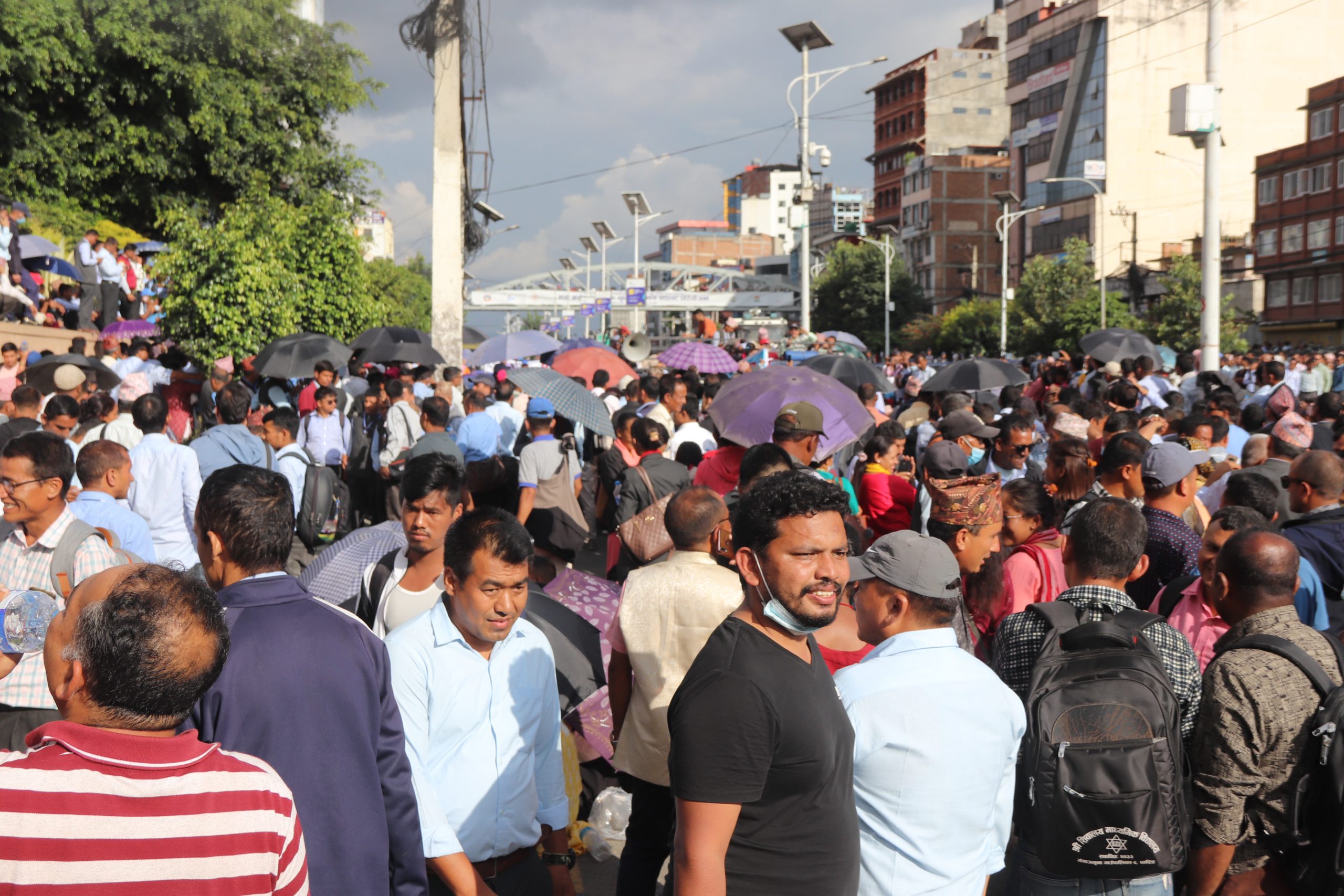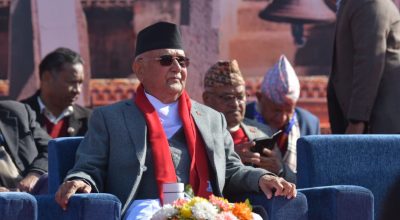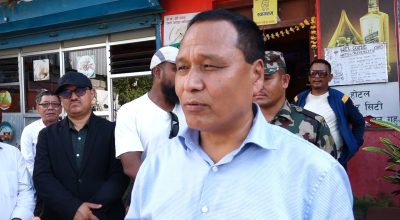
Narayan Prasad Ghimire
Kathmandu, Sept 28: We are in an inclusive and participatory democracy. Inclusion is one of the salient features of present constitution of Nepal.
It is believed as an effective tool to manage diversity as well. Similarly, participation bears much significance to this regard.
But, the recent activities have been pointing out the flaws, which need immediate correction. Recent protest of school teachers centered in the federal capital, Kathmandu, is one of the pressing incidents which exposes malaise in governance, policy and law making in Nepal.
It has been long that Nepal announced and adopted federalism and constitution, according to which, the school education is to be managed by local levels. But, as the government tabled the federal education bill, incorporating this constitutional provision, it created furor among the teachers.
They took to the Kathmandu streets, paralyzing traffic, while the cost of depriving children of their rights to education is incalculable. Still, those working in temporary basis in relief quota are agitating here.
Where does the lacuna lie? Who is to blame behind the bill that is unacceptable to teachers? In the federal education bill and school education bill, the school teachers are major stakeholders, who, however, are badly sidelined in this regard. We wrote in the national charter that we are inclusive and participatory, but the behaviour we are doing is reverse.
It is sheer failure of lawmakers not to reach and consult teachers and their associations while drafting the bills relating to education. It is not transparent way of making bill. The bill exposed a secretive culture which is against the present system.
The teachers have shown grave concern why their right to collective bargaining was erased. Similarly, they were vocal against the bills depriving teachers from their affiliation to different political parties through associations and unions.
Here, teachers too want to be bracketed under certain political parties via the associations and unions. Fault lies on them as well. Why do teachers need their affiliation to political parties? It is natural and normal that anyone irrespective of profession can have political faith.
But, advocating any political parties and their ideology being teachers is injustice to education to children.
Quality education is the need of the hour, but ideologically divided school teachers and subsequent behaviour badly impacts the students. Overall school management is questioned time and again due to this.
Next, the teachers must have been aware that with the new constitution in place, the local levels were to manage the school education.
The teachers could raise voice on time in a peaceful manner so that correction measures could be thought early.
At the same time, teachers’ argument that the local levels and the people’s representatives and government employees were not qualified enough to manage school education, and transfer and promote teachers.
It evidently reflects distrust of the aware people, teachers, on the local governments. Why the governments are unable to garner support of the people and professionals and cater service accordingly.
Whose responsibility is it to capacitate local levels? Absence of public trust weakens the system. Here, the politicians and lawmakers from all three tiers of governments must review their roles, identify the gaps and make correction on time. In this regard, General Secretary of Nepali Congress, Gagan Thapa, spoke in the party meeting that ‘it is true that federalism is not functioning well.’
At the same time, he reminded that ‘federalism is not foisted.’ The view put forth by General Secretary of the largest democratic party in Nepal, Nepali Congress, bears significance and warrants analyses. Why was Thapa compelled to make it clear within his party that ‘federalism is not foisted.’
He, however, admitted that federalism was not functioning well. Some questions to be raised here are: Are his party members themselves questioning over federalism? Has the time come to reconsider federalism, a new system the country adopted by ending the centuries plus unitary system? Doesn’t Nepali Congress have unified voice and stand on federalism and the new constitution? If political trust is eroded on system, it may have multiplier effects.
While talking about the implementation of federalism and new constitution, dozens of laws are awaited to be formulated.
The federal parliament, the place to deliberate and formulate laws, is taken hostage of political tussle and petty party interest.
Frequent obstruction and indefinite postponement of parliament in the federal and provincial levels has hindered the law-making, thereby delaying effective enforcement of federalism and constitution. To this, senior politician and lawmaker Chitra Bahadur KC blames the lawmakers of major political parties.
“It is not parliament but parliamentarians of big political parties that are playing role to derail the system,” he said.
Inclusive democracy limited merely in constitution does not deliver. It must ensure deliberation and discussion on pressing concerns of State affairs and make laws, ensuring participation of concerned sectors.
Lawmakers must rise above party interest to make parliament more functional and garner public trust on system. The new system is achieved with hard struggle.
The questions posed before the system and anomalies in the political behavior need proper address and correction. How do major political parties’ lawmakers regard lawmaker KC’s blame? RSS










